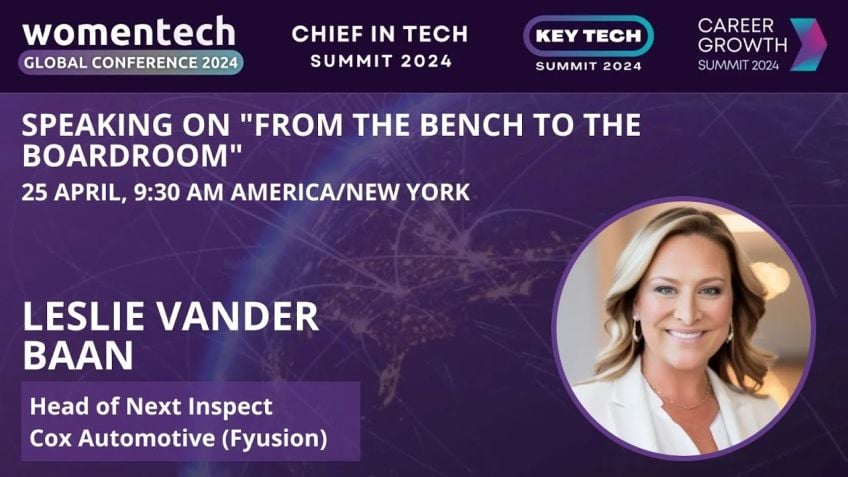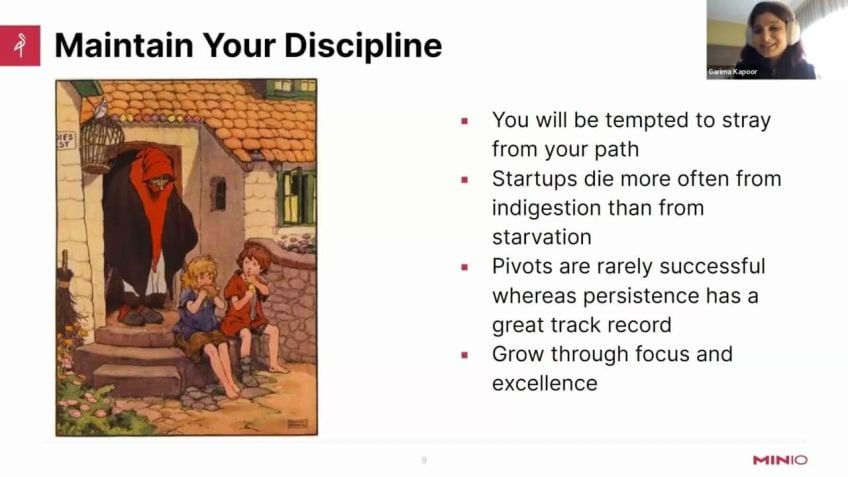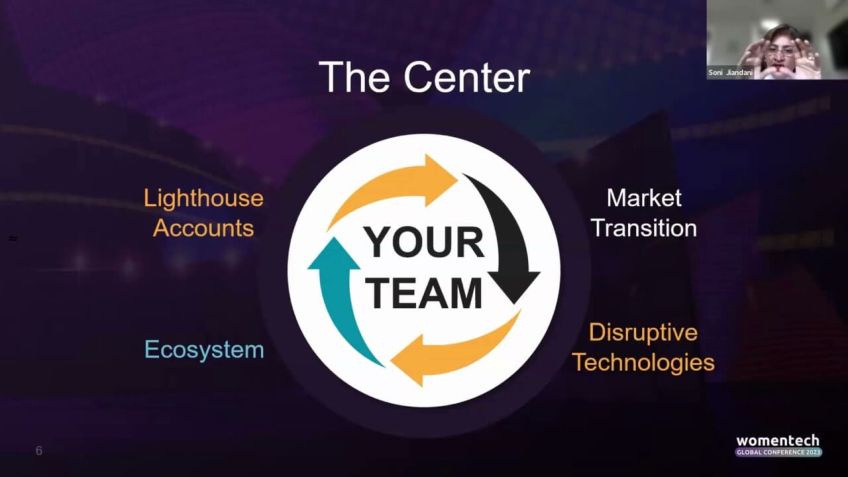10 Dirty Little Secrets of Successful Entrepreneurs
Adi Mazor Kario
CEO, Invincible InnovationUnveiling the Secrets of Successful Entrepreneurs
Hello everyone, I'm Adema Zocalo, a product innovation and value creation expert, with vast experience in the tech industry in Israel. In today's dialogue, we delve into the fascinating world of entrepreneurship, exposing what ticks successful entrepreneurs.
The Love for Risk
The first distinctive feature prevalent among successful entrepreneurs is the love for risk. To illustrate this, envisage two young individuals starting a company from their garage, amid uncertainty and a daunting statistic - 90% of startups fail. Despite this reality, they choose to risk their efforts, time, and resources on the venture. Jeff Bezos, the founder of Amazon, is a classic example, he points out that "the only way to get above-average returns is to take risks."
Faking It
The second trait is what we call "faking it". In the early stages, entrepreneurs often appear confident in their ability to succeed, but even they are uncertain of the outcome. Sometimes this involves building a mirage around their products, services, and even their visionary ideas. They basically spin a persuasive narrative that attracts investors and customers alike.
Narcissism
The third trait is a hint of narcissism. Often, successful entrepreneurs have a dominating personality and a high sense of self-importance. This trait is likely tied to their need to sell their entrepreneurial story and inspire faith in their brand or product.
Resilience in the Face of Rejection
The fourth trait is their ability to never give up. The entrepreneurial journey entails numerous rejections from investors, potential clients or hurdles during the startup phase. However, the successful ones seem to have developed a unique ability to stay the course despite multiple setbacks.
Eagerness to Prove Themselves
The fifth trait is their eagerness to prove themselves. This attribute could potentially stem from an urge to override a negative childhood experience or alter societal perceptions about them, thus fueling them to work tirelessly toward their goals.
Introversion and Competitiveness
The last two traits are introversion and competitiveness. Surprisingly, a considerable percentage of successful entrepreneurs identify as introverts. Their introspective nature likely fosters deep thinking and visioning, integral parts of entrepreneurship. Furthermore, they enjoy competition, finding innovative ways to outsmart competitors and thrive in the market.
Conclusion
In conclusion, understanding the distinct traits of successful entrepreneurs - their love for risk, capability to "fake it", narcissistic streak, resilience to rejection, eagerness to prove themselves, introverted nature, and competitiveness - provides invaluable insights into their success. This understanding is not only beneficial to budding entrepreneurs but also necessary for anyone seeking to venture into the thrilling world of entrepreneurship.
I hope you found this discussion insightful. Feel free to find me on LinkedIn as Adi Mazo Kio for more discussions on this and other topics in the fascinating world of tech entrepreneurship. Thank you and have a great day!
Video Transcription
Hey, everyone. I'm so happy that you're here with me and we have like 20 minutes together and I'm, I'm so happy for the opportunity to meet you all. So let's start with, with working together and thinking together about that.And we're gonna talk about the little secrets of successful entrepreneurs. What makes an entrepreneur? What makes him tick, what is the features and capabilities and skills that, that are needed? I am Adema Zocalo product innovation and value creation expert. And I'm very happy to be with you.
I have about 20 years in the tech industry in Israel. I've worked with many start ups and entrepreneurs during these years and it's always intrigued me to think about what makes them who they are and why are they doing entrepreneurship instead of being, you know, lawyers and accountants?
Um I'm an expert in product strategy and design and currently I'm working on it in a course in A I products and speaker. I have a podcast and I'm so happy that we can start uh with this talk. I thank you. I want to thank you all, all the listeners, all the people who are viewing all the people who are viewing the, the video afterwards uh for taking the time and, and then, you know, time right now is something that everybody has so many, so much content, so many things to do during their time.
So if you're de dedicating your time in order to be with me, so I'm very, very appreciative of that. OK. So what makes a successful entrepreneur? That's a question. How are they different from other people? What, what makes them think different? And, and I'm gonna talk about several features uh in their personality that makes them different. Um The first one is that they love risk a minute. Don't you hear me? Well, someone is asking me. Yeah. Do you hear me? Well, I hope you do, right? OK. OK. So, so let's continue. So there are risk levels. So we have a picture here of uh the two entrepreneurs who started a Google, of course, as, as you can see, they are very young and they're in their garage and you see on the side all the garages of the very successful companies right now like Amazon and Apple and so forth. And just thinking about these two young people um who are uh um so eager to be successful and they're taking their knowledge and their thoughts and they, in this very uh uh strange setting, you see with all this like cramped place with all the boxes and they're starting to, to create something and they're so eager to do uh changing the world.
And although it sounds very romantic, these two young young people starting from scratch in their uh uh a basement or garage. In that case, it's actually something very, very risky because although we imagine that they have an idea and they think about the competitors and they work a lot of time sometimes through the night and it's, it's very uh demanding and there is endless uncertainty because nobody knows if they succeed or not.
But there is one very known fact, the very simple one that 90% of start ups fail. So they do something, although they know that they have 90% of failure expected. So it's like very uncommon to be successful. Surely to be the next Google is something that hardly happens, although it's usually not happening still, they're doing that. So they're aware of that risk. Everybody knows it's very risky to have a start up and to be an entrepreneur. Actually, you're working very hard at the beginning without any salary. In many cases, maybe after you get investment, maybe. But in any case, you're taking all your efforts, all your resources and placing them on something which is very risky. So you need to be a risk lover, you know, to be uh an entrepreneur, it's very, very important for you. And here we have this very nice librarian that we know is Jeff Bezos today. And he said the only way to get above average returns is to take risk and many won't pay off our whole history as a company is about taking risks. So he started from this uh bookstore a year, several years back. And now he, he has this empire of technology and each one of the, of the, the decisions that he made through the years, we were very risky because he started with something which is very specific like ecommerce. And then he elaborated what he's doing more and more.
So you need to be um risk level in order to get to where he is right now. Another thing is that they fake it at least at the beginning because they don't really know if it will be successful if they could do it or not. Although they look very sure of themselves, they are not. So they need to know how to actually lie and to sell a fairy tale. So sometimes they are lying about the product, about the capabilities of the product, about the vision about the customers. And, and they need to know how to have this ability to sell a dream or to sell something, which is a fantasy actually without really, really starting to see the vision created. If we're talking about uh Jeff Bezos, he had so many years that they were not profitable, he invested everything back to the company still doing. So because he wanted to grow it further. So you need to have the uh ability to, to uh send the vision and to get trust from the people in order to get to better um solutions and better um um and products and, and results in the business and they need to know how to get to the story itself. It's sometimes it's in the pitch deck. Sometimes it's the way they brand themselves. Sometimes it's the way they tell this whole story about the company.
It depends, but they need to know how to tell a story and to fake it in order to, for someone to believe that, yeah, this is what they're gonna build, they could do it and we would invest or, or buy their product. Although it's, it's not stable in the beginning. And we have uh another example from Sam Bachman and I, I decided for this person because if we're talking about someone who could sell a dream or television, it's a great example. Sometimes the only thing standing between what is and what could be is is the will to get there whatever it requires. And you know that Sam Beckman was uh I think arrested not not long ago because he's done everything in order to get to where he wants. Sometimes with, with not everything being so stressful and, and, and really telling the truth in that case. So we know that they love risk and we know that they could fake a story for everyone to believe the investor, the clients, everyone around them in order to get what they want. Another thing that it's, in many cases people see it as something very, very, uh, negative is they, they are nar narcissists. They are very into themselves and they are very, very, uh, in a high sense of how important they are.
And many people think it's, yeah, they're sure of themselves. They need to be sure of themselves because they are selling the story because they need to hire a very, uh a group of very talented people. They need to get investment so they need to be sure of themselves. But it seems that when we are searching for the trades of these entrepreneurs and we're studying the psychology of them, they have three very main. It's uh it's called try these three traits that are a dark or negative narcissist. They are me, me and uh uh there is a psychopath, some of them which is being not sensitive to others. And I, I want to focus on being a narcissist because if you want to build a company and you are taking risks and you need to be a leader and you need to be sure of yourself and you need to be very, um persuasive the way that, that you're talking sometimes it's, it's coming from a point of view that I'm very important and I know and everything is, is uh is what I think, what I do, what I need.
So they're very aware of themselves sometimes. Um if they're um not sensi sensitive, it's very hard to work with them. And sometimes uh people working with them really suffer. And I'm taking another example from Adam Newman. We all know the story of we work and he's very sure of himself. He's very charismatic, by the way, even after we work, he still got uh another uh funding for his next uh um project or product. And he says success is not just making money, it's the ability to give. So I, I think that the way that he is thinking about himself is being so courteous that he's giving to others as if he's, he is um so nice to other, by the fact that he gives them a job or whatever or the fact that he is so noble. Uh It makes him um not aware of the fact that he is very um uh constrain and on himself and thinking about himself all the time. The, the fourth one is, is two points for the same thing. So one side would be that they never give up. They're very um going to the, a certain direction and they're very sure of this direction and they won't give up. But the other side of it, they, they're usually getting lots of rejection if we're talking about the percentage of failure and they get lots of no.
And they need to be able to get rejection and to relate, to relate to rejection and keep on going. So if we're taking a few, a very successful companies, we can talk about airbnb. They got rejected many times before they got their seed and draw box. It was rejected for y company several times. And of course, the story of the Harry Potter and, and, and how many times she was rejected 12 star from publisher. So they get lots of no, it could be a no either from investors. They you will not be and and will not invest money in you, especially in the beginning. And it could be from their clients. Then maybe they want a very big deal and the client say no and another client say no or they started working and then they say, OK, we don't want to continue working with you. So they get lots of no and they need to be able to take this rejection and not give up, which is something that most of us i it's very hard for us to be rejected and, and these people know how to relate to it differently. So I want to tell you a story about Larry and Sergei that we saw there in the garage in the beginning and they were at the beginning of really building this search engine and they um they said, OK, it's like consuming too much time when they're very young and still uh students.
It's consuming too, let's try. We want to concentrate more on our work and maybe it's time that we, we um give up on this. It's, it's like too much for us and they went to this uh person uh George Bell. Back then. He was uh the manager of, of Excite, which was a search engine and they had their own uh uh capabilities and they wanted to sell it to him for $1 million and he said no. So they were ejected and they were forced to continue with their work, although they wanted to give up and, and we all know the story that Google is, is very, very successful, is worth $1.28 trillion. So they got rejected, but they still, they went on and they knew how to relate to that and still it will, it will not steal their energy and their belief in themselves. Another thing that they're very eager to prove themselves. So what makes them be so energetic to work so many hours a day, so many years in the same direction and not give up? They need to be very eager to prove something, right? So if, if I'm so comfortable with myself, I don't need to prove anything to anyone. I wouldn't be um that, that uh persuasive and, and that like focused on what I wanna do.
So when you are thinking about these young men uh in their uh I know their, this is their uh college uh um um profile image in their uh college books. So you see Steve Jobs and to Tim cook and Sergei and, and Larry, we have uh Elon Musk. This is Bill Gates and, and this is the Jeff Bezos. OK. So we see these very, very young men and we could ask ourselves, why are these people different? What makes them different is some people say they are gigs. They're d they're in this popular. O OK. So when I think about that and that what comes to my mind just a minute, there's something wrong with this slide. Ok. Do you see my slides again? I hope that you do. Ok. So I'm thinking about, um, I went to a show of Chris Rock and he told the story about Steve Jobs and it made me think and he said, I just read uh the Steve Jobs book. There is no way you could tell me that guy wasn't beat up in school and what happened? He used that pain to make sure that he'd be in a position where he would never be bullied again. Of course, he told him much more like in a funny way than, than what I say. But there is a truth in there because we know that some of them were bullied.
We know some of them were not popular when they were young and it makes them eager to prove to others that they could be more that they could be more than they were perceived when, while they're there were young and, and we can think about the history, for example, Steve Jobs was adopted when he was a baby.
And we can see like a research is being done on that. And we know the childhood childhood experience has a way to, to change our lives and, and to change our, our personality as, as grown ups. And we know that entrepreneurs uh uh Children uh were had a very difficult childhood and we know that there uh the fact that they had a difficult childhood uh made them stronger in a sense that most kids uh would be uh uh left alone and then not as strong. But these people, they have the resilience in order to get stronger afterwards. And I want to tell you about Elon Musk that was bullied. And uh when he was beaten up so hard, he had like two weeks in the hospital when he was about eight and he, he, he had a very, a harsh, abusive relationship with his father. So this guy, uh who apparently has some kind of of uh Asperger syndrome was had very hard childhood. And he, he's one of the biggest entrepreneurs out there. Uh uh a very nice story about uh Bill Gates is uh if I had a dollar for every time someone made fun of me in high school. Oh, wait, I do. So it seems like he is telling this, this story again. They're introverts.
So I have like a few more slides before we finished, most of us believe that successful entrepreneurs are extroverts, but they are very kind as they know how to talk. And as you can see, sometimes they're not good in dressing like as you can see Steve jobs. But actually most of them, 36% of them describe themselves as introverts. And only 15% that percent said they are extroverts, which makes sense because they are thinking in their mind, they have the vision, the imagination in order to create something and then they're doing things in order to create it in the, in the reality. The last thing I want to say that they are very competitive. Um and it's very important to be competitive, especially as an entrepreneur starting a new, a new uh start up. And these people embrace a, a competitive competition and they enjoy competition, it's not threatening for them and they really love it and it's important for them. And the last story I want to tell you is by Mark Baner from Salesforce and he loves the competition and they had a very big uh um competitor when they just started called Sable. And this competitor had had a very big event in Cannes, in France.
And he knew that most people will land nice because there is a big airport there and they would need to drive in a taxi to the event in the, in the, in inside A K. So what he did. He took all the navy of the taxis and placed a salesperson of sales person inside the taxi and during about 50 minutes from the airport to the event, they just sold sales force and made them uh uh the first customers of sales force were, were done this way. So it's more than being enjoying the competition. It's just being very creative is and and competitive in that sense, um which is very important for these people in order to succeed. And if you have any question, I would love to hear, I think that we have like two more minutes in order to hear your thoughts. So I would love to, to hear that. Ok, so I'm not sure if you have like, I'm not seeing everything like in front of me. So um um I, I would, I, I don't know if you get the, the links, the, the presentation and the links, but I have lots of like additional stories and research uh uh related to that and if you want to uh have any question or anything related to working with entrepreneurs and what is needed.
And I'm, I'm a, I'm a product person. Yeah, of course, I can go back and you can see that. Ok. So what we have actually is like four, actually we have seven instead of 10 because I, I had only 20 minutes. So it's only seven secrets. So what we have is the first one is that there are risk lovers then we have like they fake it, they know how to lie more or less. They are a narcissist. They're very, and, and know a lot around themselves and they're sure everything that surrounds them, it is less important. They know how to get rejected and not give up and they're eager to prove themselves. And we talked about their childhood, they're introverts and the last thing is that they are competitive. So these are the, the things that OK, so I wanna thank you for your time if you want to find me on linkedin Adi Mazo Kio. And I'd love to hear more from you and, and to answer any of your questions. Thank you all. Have a very, very good day. Good luck. Bye bye.






